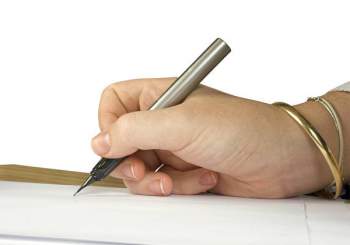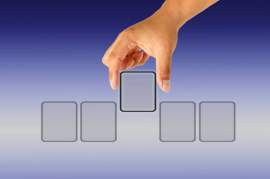
Facts About Honoring Checks and Misc Information

When a drawee honors a check, it essentially means that that party is accepting the check as valid or is paying it as valid. It means that the drawee is offering to the holder, the payee, the appropriate sum of money for the check. Though a check, as a negotiable instrument, may pass through many hands before finally being presented for payment, when it is presented for payment, it is then up to the drawee to honor that check. If the check is not honored, then the check does not function at its most basic level. There are some reasons for why a check would not be honored, however, that are quite valid and important.
Background
Honoring checks is critical for checks to function as valid and useful negotiable instruments, but there are a few basic reasons for why a check might not be honored. Most obviously is if a check is fraudulent in some fashion. Fraudulent checks should not be honored, as that will likely cause more problems than it solves. Fraudulent checks are difficult to detect most of the time, however. Unless there are clear material alterations made to the check or the check clearly has a forged signature, then the drawee generally cannot employ this reasoning in order to avoid honoring the check.
Another reason why the check might not be honored is that there are not enough funds in the drawer's checking account from which the check is being paid. In such a case, a drawee, like the bank holding the account in question might deny payment on the check because there isn't enough money to pay it. This is an instance in which the drawee cannot be held accountable for not honoring the check, as the decision to not honor the check was a result of the drawer's lack of funds, not the drawee's actions.
In some instances, however, a drawee might not honor a check because that drawee is participating in some kind of fraudulent action surrounding the check. This is somewhat unlikely, as the drawee of a check is most likely a bank and it is unlikely that any bank which has survived for any length of time would be perpetrating such a fraud.
Nevertheless, it is still theoretically possible and anyone who encounters a situation of a check not being honored should investigate more thoroughly in order to discover why. For more information about the basic issues of honoring checks and some of the reasons why a check might not be honored, follow the link.
Overdrafts
Overdraft fees are fees that some banks may make a drawer pay when his or her account does not have sufficient funds to support payment on a check he or she has drawn. Instead of simply denying payment on the check, as some banks would have done in the past, many banks nowadays instead use overdraft fees to penalize the drawer.
This would mean that the payee still receives full payment on the check, thereby ensuring that the payee has no complaints of the drawee refusing to honor the check. But the drawer might have a full $30 to $40 added to the charge to his or her account for having overdrawn the checking account.
A lot of this money would be out and out profit for the bank, which is why the practice of employing overdraft fees is so appealing to banks. There are some ways to prevent falling victim to overdraft practices in America, many of which include altering or specifying the agreement that the drawer has with the bank. The drawer might, for instance, obtain some form of a line of credit for his or her account such that if he or she overdraws, then instead of being charged an overdraft fee, he or she has a bit of leeway.
A drawer might also choose to link a given account with another account, such that if he or she overdraws the first account, funds can be drawn from the second account instead. But without any of these protective practices in place, a drawer might find him or herself subjected to overdraft fees.
As the causes for overdrawing an account might actually not even be the fault of the drawer, overdraft fees are a somewhat dubious practice. For example, if a drawer has his or her account overdrawn by a misstated charge or bill (like a typo charging $500 instead of $50), then the drawer might find his or her account overdrawn and might suffer overdraft fees without having engaged in any wrongdoing.
The drawer might be able to receive restitution from the erring party, but many would argue that removing the overdraft fees to begin with is the better solution. To learn more about overdraft fees, how they function, and their pros and cons, click the link.
Postdated Checks
Postdated checks are checks which have been dated such that they should not be drawable until the specific date mentioned on the check. This is likely because the account from which the check is drawn might not have enough funds in it to support the postdated checks at the time at which they are written. In order to ensure that they can be successfully drawn without any risk of insufficient funds, the payee should hold off on drawing them until the date written on the postdated checks.
Postdated checks are not illegal under American law and are a viable form of negotiable instrument, but there are some problems associated with them, which anyone should be aware of before he or she accepts postdated checks. For example, a postdated check might be used for some form of fraudulent practice, as the check’s drawer might receive whatever goods he buys with the check only to cancel the postdated check before the date comes and it can be drawn by the payee. As such, postdated checks should be taken only warily from drawers whom the payee trusts.
A postdated check might still be accepted by a bank, even if the date written on the check has not come yet, as a postdated check is still a negotiable instrument which a given holder can negotiate to another holder at will. Postdated checks can even likely be drawn earlier than the drawer wanted, but in such cases, it is likely that the checking account from which the checks are drawn might not have sufficient funds to support their payment. To find out more about postdated checks and the practices surrounding their use, follow the link.
NEXT: How To Handle Check Fraud if it Happens to You?





















